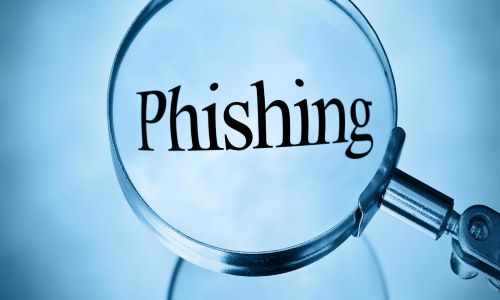How to Report Phishing Scams
 By
By
Welcome to our comprehensive guide on how to report phishing scams and protect yourself online. In today's digital age, phishing scams have become increasingly prevalent, putting our personal information at risk. By learning how to identify these fraudulent activities and promptly report them, you can safeguard your sensitive data and contribute to a safer online environment for everyone. Phishing is a deceptive tactic used by cybercriminals to trick individuals into providing their personal information, such as usernames, passwords, and financial details. These scammers often pose as trusted entities, such as banks, social media platforms, or online retailers. They send convincing emails or create fake websites to lure unsuspecting victims. When you encounter a phishing scam, it's vital to report it immediately. Reporting phishing scams not only protects yourself but also helps authorities identify and apprehend the criminals behind these illegal activities. Additionally, by reporting it, you prevent others from falling victim to the same scam. In the following sections, we will provide you with detailed guidelines on how to recognize phishing scams, report them to the appropriate authorities, and take proactive measures to protect yourself against these online threats. Stay informed, stay vigilant, and let's work together to keep our personal information secure. Before you can effectively report a phishing scam, it is essential to be able to recognize one. Cybercriminals employ various warning signs and techniques to deceive unsuspecting individuals. Identifying these phishing scams is crucial in safeguarding yourself from becoming a victim. One common warning sign of a phishing scam is receiving unsolicited emails or messages asking for personal information such as login credentials, financial details, or Social Security numbers. Genuine organizations, especially banks and government institutions, will never request sensitive information through email or text. Another red flag is poor grammar and spelling errors. Phishing attempts often contain language inconsistencies and typos, indicating a lack of professionalism and credibility. Additionally, be cautious of emails or messages that create a sense of urgency or threaten consequences if you fail to take immediate action. Pay attention to the email sender's address. Phishing scams often masquerade as legitimate organizations by using deceptive domain names or email addresses that closely resemble the real ones. Scrutinize the domain name carefully, as slight variations from the official domain can be a sign of a phishing attempt. Hovering over links before clicking on them can also help you identify phishing scams. Phishing emails commonly contain embedded links that direct you to fraudulent websites designed to steal your personal information. Check the URL displayed in the status bar of your browser to verify its legitimacy. Remember that reputable organizations will never ask for your sensitive information through pop-ups, chat messages, or social media. Be cautious when interacting with these channels, as cybercriminals can exploit them for phishing purposes. To effectively protect yourself from phishing scams, it's essential to stay informed and educated about the latest techniques used by cybercriminals. By being vigilant and recognizing the warning signs, you can avoid falling victim to these fraudulent activities and keep your personal information secure. Once you have identified a phishing scam, it is crucial to report it to the appropriate authorities. Reporting phishing scams is a vital step in combating online fraud and protecting yourself as well as others from falling victim to these fraudulent activities. In this section, we will guide you through the process of reporting phishing scams to law enforcement agencies and organizations dedicated to fighting internet crime. One of the key resources for reporting phishing scams is the Internet Crime Complaint Center (IC3). The IC3 is a partnership between the Federal Bureau of Investigation (FBI) and the National White Collar Crime Center (NW3C), providing a platform for victims of cybercrime to report incidents and share information with law enforcement. To report a phishing scam through the IC3, you can visit their website and fill out the online complaint form. The form will require you to provide details about the phishing incident, including any related emails, websites, or messages you have received. The IC3 recommends providing as much information as possible to aid in their investigations. In addition to the IC3, various other organizations and agencies are committed to combating online fraud. Depending on your location, you can report phishing scams to your local law enforcement agency or the cybercrime division of your country's police force. Remember to provide them with all relevant information and evidence that can assist in their investigations. By reporting phishing scams to the authorities, you play an essential role in helping to identify and apprehend cybercriminals. Your actions contribute to making the internet a safer place for everyone. In order to protect yourself from phishing scams and ensure the security of your personal information, it is crucial to take proactive measures. By following best practices and implementing online security measures, you can significantly reduce the risk of falling victim to phishing attempts. One of the first steps in protecting yourself against phishing scams is to strengthen your password management. Create strong, unique passwords for each of your online accounts, combining a variety of uppercase and lowercase letters, numbers, and special characters. Additionally, consider using a password manager to securely store and manage all your passwords, eliminating the need to remember them all. Be cautious when clicking on links or downloading attachments in emails, especially those from unfamiliar senders. Phishing emails often mimic legitimate ones, so carefully inspect the email address and look for any suspicious signs or inconsistencies. Similarly, double-check the URL of websites before entering any personal information, making sure they have a secure "https" connection and a valid SSL certificate. Implementing two-factor authentication (2FA) adds an extra layer of security to your online accounts. By requiring a second form of verification, such as a unique code sent to your mobile device, you can ensure that even if cybercriminals obtain your password, they won't be able to access your account without the additional authentication step. Regularly update your operating system, web browsers, and security software to protect against known vulnerabilities. Keep yourself informed about the latest phishing techniques and warning signs by staying up to date with online security news and resources. Educating yourself about the evolving nature of phishing scams will help you better identify and avoid potential threats. By implementing these phishing prevention measures and proactively staying informed, you can significantly enhance your online security and decrease the likelihood of falling victim to phishing attacks. Remember, protecting your personal information is a continuous effort, so stay vigilant and regularly review your online security practices. Additionally, incorporating phishing awareness training into your organization's security protocols can further empower employees to identify and report phishing scams effectively. This training educates staff on recognizing phishing attempts, understanding the tactics used by cybercriminals, and knowing the steps to take when encountering suspicious emails or messages. In conclusion, reporting phishing scams is crucial for maintaining online safety and protecting your personal information. Phishing scams continue to pose a significant threat in the digital landscape, targeting unsuspecting individuals and organizations worldwide. By familiarizing yourself with the warning signs and understanding how to report these fraudulent activities, you can play an active role in combating online fraud and ensuring a safer online environment for everyone. Throughout this article, we have provided you with step-by-step guidelines on how to effectively report phishing scams. Remember to stay vigilant and be mindful of suspicious emails, messages, or websites that may attempt to steal your personal information. When you encounter a phishing scam, take immediate action and report it to the appropriate authorities. By doing so, you not only protect yourself but also contribute to the collective effort in minimizing the impact of phishing scams and holding cybercriminals accountable for their actions. Together, we can work towards building a more secure online ecosystem where individuals can navigate the digital world with confidence, aware of the risks and equipped with the knowledge to combat phishing scams effectively. Stay informed, stay proactive, and report any suspicious activities. Let's make the internet a safer place for everyone.
Recognizing Phishing Scams
Reporting Phishing Scams to the Authorities
Protecting Yourself Against Phishing Scams
Secure Password Management
Email and Website Security
Enable Two-Factor Authentication
Stay Updated and Educated
Conclusion




